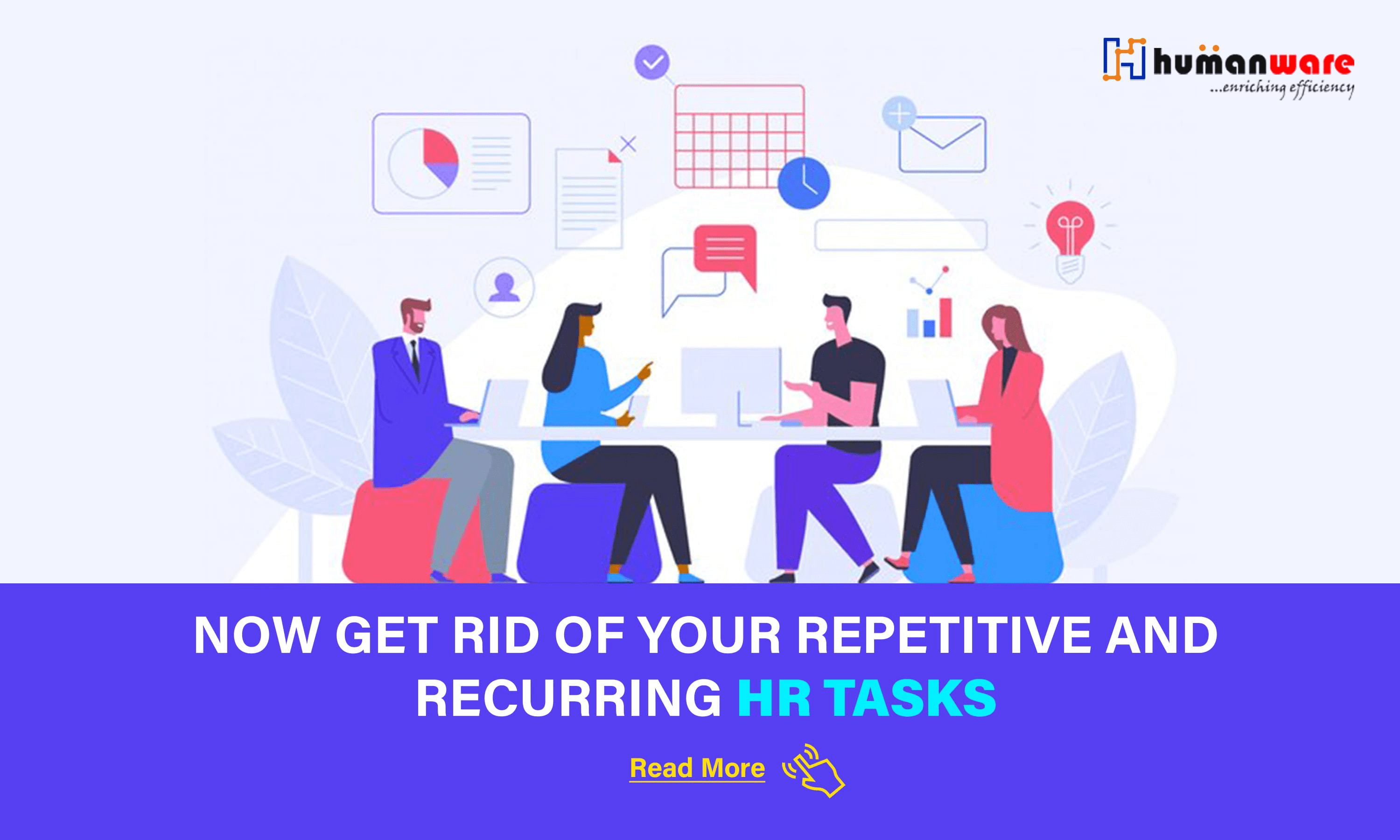
Now Get Rid of Your Repetitive and Recurring HR Tasks
Are you tired of spending countless hours on repetitive tasks instead of focusing on strategic initiatives? Simplifying your work process can transform your productivity and efficiency. With the right tools and strategies, you can say goodbye to monotonous and time-consuming processes. By automating routine tasks and eliminating bottlenecks, you can free your HR team to devote their energy to more effective activities. Get ready to unlock the full potential of your HR department as we embark on a journey to revolutionize your workflow, increase productivity and support a more agile and responsive organizational culture. It's time to embrace efficiency and say goodbye to the constraints of repetitive tasks.
The Repetitive HR Dilemma
HR professionals are well aware of the repetitiveness of some tasks. From manual data entry and payroll processing to managing leave and common employee queries, these tasks can be time-consuming and error-prone. The impact is felt not only on the effectiveness of HR activities, but also on the overall employee experience. The consequences of this dilemma are far-reaching. Not only does this prevent HR teams from focusing on higher-value tasks, but it also increases the risk of errors, reduces employee satisfaction, and harms organizational agility. Companies facing these challenges are at a crossroads. The question is not only how to manage these tasks, but also how to exceed them, enabling HR teams to make more strategic contributions to organizational goals.
Unlocking Efficiency with HRMS
1. Automated Data Management
Data management using HRMS optimizes HR activities by centralizing and automating the processing of employee information. This advanced system streamlines data entry, reducing errors and increasing accuracy. It provides a centralized repository, facilitating quick access to key HR data and supporting informed decision-making. Automated data management not only improves the efficiency of processes such as onboarding and performance assessment, but also ensures scalability, seamlessly adapting to the development of the organization. Ultimately, an HRMS transforms data management from a manual, time-consuming task into a streamlined task that significantly contributes to HR operations.
2. Effortless Recruitment Processes
Recruitment processes with HRMS are redefining talent acquisition through the use of automation. HRMS speeds up candidate sourcing, CV screening and interview scheduling, thereby speeding up the recruitment cycle. By automating repetitive tasks, it allows human resources professionals to focus on strategic decision-making rather than administrative burdens. The system's efficiency not only speeds up recruitment, but also ensures a smooth onboarding process, thereby improving the overall candidate experience. HRMS transforms recruiting into a dynamic, efficient and strategic function, enabling organizations to easily attract and integrate top talent.
3. Precision in Payroll Processing
Accuracy in payroll processing is fundamental to an organization's success, and HRMS emerges as a solution that ensures accuracy and efficiency. This advanced system automates complex payroll calculations, manages tax deductions, payroll taxes and compliance complexities with pinpoint precision. By minimizing manual intervention, an HRMS minimizes the risk of errors associated with traditional payroll methods, ensuring accurate and timely payments. Seamlessly integrating payroll processes with HRMS not only improves financial accuracy, but also frees HR professionals from tedious administrative tasks, allowing them to focus on strategic initiatives that contribute to overall organizational excellence. HRMS transforms payroll processing into a streamlined, error-free operation that promotes financial integrity and employee satisfaction.
4. Empowering Employee Self-Service
Empowering employees through HRIS represents a paradigm shift in employee engagement. This function allows employees to independently manage their personal data, submit leave requests and access human resources. Easy-to-use self-service HRIS portals increase employee autonomy, reduce the burden on HR teams, and improve the overall employee experience. By facilitating communication and the constant search for information, an HRMS enables employees to take control of their human resources tasks, supporting a more engaged and satisfied workforce. This transformational aspect not only simplifies HR processes, but also aligns with the modern workplace's emphasis on employee empowerment and productivity.
5. Data-Driven Decision-Making
HR professionals can now make informed decisions based on workforce trends, performance metrics, and predictive analytics. By adopting a data-driven approach, organizations gain a competitive advantage in talent management by identifying top-performing employees, forecasting workforce needs, and aligning HR initiatives with overall business goals. An HRMS facilitates real-time reporting, allowing you to quickly adjust your HR strategy as needed. In the age of digital transformation, the ability to draw actionable insights from HR data not only increases organizational agility, but also makes HR play a strategic role, ensuring that decisions are not only intuitive, but also based on empirical information, ensuring lasting success.
Conclusion
Integrating HRMS into your HR operations structure is not just about upgrading technology; This is a paradigm shift. It's about breaking away from the chains of repetitive tasks and unleashing the true potential of HR specialists. As organizations face the complexities of the modern workplace, adopting HRMS becomes a strategic imperative. The benefits are not limited to increased productivity; these include accuracy, employee satisfaction and the ability to make informed decisions based on data. It's time to free HR from the everyday grind and lead it into a new era of efficiency and strategic excellence. Adopt HRMS and start the transformation that is beginning.